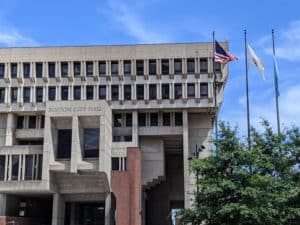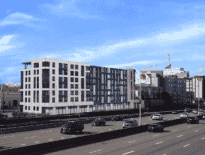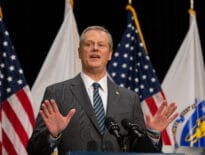Boston officials are looking for a few good ideas – $50 million worth, to be precise.
Mayor Michelle Wu announced earlier this week that a large pot of money from three different city-controlled sources was available for projects was available to create and preserve rental, cooperative and homeownership developments in Boston.
“Safe and stable housing is critical for the health of our residents, families, and communities,” Wu said in a statement. “This funding will ensure significant investments go toward safe, accessible affordable housing in our neighborhoods across the city. I’m grateful to the Mayor’s Office of Housing, the Neighborhood Housing Trust, and the Community Preservation Committee for their leadership and partnership with our nonprofit and for-profit community development organizations to ensure Boston is a city for everyone.”
The city plans a virtual info session for applicants on Aug. 24 at 10 a.m., but applicants should send the city a letter of intent by Friday, Aug. 26 and a final proposal by 4 p.m. on Sept. 30. Interested applicants may register for a package on the city website.
The $50 million on offer is broken down into two separate requests for proposals: $30 million for money from the Mayor’s Office of Housing and the Community Preservation Committee, and $20 million from the Neighborhood Housing Trust Fund.
Proposals that produce “significant percentages” of housing for low-income, homeless, senior and disabled residents will be prioritized, city officials said, and projects must show they’re furthering fair housing while efficiently using the money and land at their disposal, the city said.
The RFPs also include requirements in line with two of Wu’s major development initiatives: creating more opportunities in real estate for minority-owned businesses and greening the city’s buildings.
The RFPs require developers to report on how they will ensure local minority-owned businesses are represented throughout the development and property management process. Development teams that are certified minority-owned business enterprises and owners of 25 percent or more of the proposed project will receive the highest preference when award decisions are being made. Development teams where 25 percent or more of soft costs go to certified minority-owned business enterprise consultants that have been identified as part of the team at the time of application will also receive an advantage. Applicants must also provide information on how resident services offered in a multifamily development will help support the economic mobility of residents who will live in affordable housing units.
All projects funded by the RFPs will be required to follow the Zero Emissions Building requirements outlined in the Mayor’s Office of Housing design dtandards. Developers will be required to submit a preliminary Net Zero Strategy as part of the design submission. New multifamily buildings must use electricity and on-site solar panels as either their sole or primary energy source.
Wu’s office said the city plans future RFP cycles to give out more than $205 million in federal COVID relief funds that Wu has earmarked for housing production.







